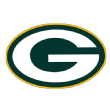To this point, the season-opening, come-from-behind win over the Chicago Bears remains the highlight of the season for the Green Bay Packers. It has been mostly downhill since then.
For the Bears, however, that game might have been just what they needed to fuel their comeback season.
More than three months later, the two teams meet again Sunday at Soldier Field. The Packers' comeback from a 20-0 deficit to stun the Bears 24-23 is a distant memory. The Packers have won only four times since then and have faint playoff hopes. Meanwhile, the Bears, at 9-4, are in control of the NFC North.
Here’s a look at what has changed and what’s ahead for both teams, from ESPN Packers reporter Rob Demovsky and ESPN Bears reporter Jeff Dickerson.
What's the biggest change for each team since Week 1?
 Demovsky: Mike McCarthy. Say what you will about McCarthy, but he went 19-7 against the Bears in his 13 years, including a win at Soldier Field in the 2010 NFC Championship Game. That also included nine wins in the past 10 meetings in the series. But McCarthy’s part of the Packers’ history is over. The Packers looked like an inspired team Sunday in Joe Philbin’s first game as interim head coach, but can that carry over? One thing can, and that’s Philbin’s approach to the offense. He wanted Aaron Rodgers to get the ball out of his hands more quickly, so Philbin’s playcalls included more of the old West Coast plays.
Demovsky: Mike McCarthy. Say what you will about McCarthy, but he went 19-7 against the Bears in his 13 years, including a win at Soldier Field in the 2010 NFC Championship Game. That also included nine wins in the past 10 meetings in the series. But McCarthy’s part of the Packers’ history is over. The Packers looked like an inspired team Sunday in Joe Philbin’s first game as interim head coach, but can that carry over? One thing can, and that’s Philbin’s approach to the offense. He wanted Aaron Rodgers to get the ball out of his hands more quickly, so Philbin’s playcalls included more of the old West Coast plays.
 Dickerson: The Bears learned how to finish games. Chicago had Green Bay on the ropes in the season opener, but second-half breakdowns on both sides of the ball allowed Aaron Rodgers to bring the Packers back from the brink. The Bears still make plenty of mistakes on offense, but their defense -- led by Khalil Mack -- is spectacular. The Bears likely won't again squander a big lead like they did in Week 1. Chicago’s defense is simply too good to let that happen.
Dickerson: The Bears learned how to finish games. Chicago had Green Bay on the ropes in the season opener, but second-half breakdowns on both sides of the ball allowed Aaron Rodgers to bring the Packers back from the brink. The Bears still make plenty of mistakes on offense, but their defense -- led by Khalil Mack -- is spectacular. The Bears likely won't again squander a big lead like they did in Week 1. Chicago’s defense is simply too good to let that happen.
At what point in the season was it clear that the Packers were in trouble?
Demovsky: After the Week 4 win over the Bills. That’s right, a 22-0 shutout actually signaled that things weren’t right in Green Bay. That’s when Rodgers used his postgame news conference to rip McCarthy’s game plan. From then on, questions about whether McCarthy and Rodgers were on good terms dominated the landscape around the team, and in hindsight, that was the beginning of the end for McCarthy.
At what point in the season was it clear that the Bears were a lot better than expected?
Dickerson: When the Bears knocked off the Vikings in Week 11. That victory served as a statement to the rest of the NFC North that the Bears were for real. Sunday night’s win over the Rams put it over the top. I don’t think there are many people left who believe the Bears are a fluke. Sure, critics still question quarterback Mitchell Trubisky, and rightfully so, but the Bears are a legitimate playoff team.
Where does this season rank in Rodgers' career?
Demovsky: The knee-jerk reaction would be at the bottom, which is remarkable considering that he has thrown 23 touchdowns and just one interception. But Rodgers has missed so many throws that he used to make with his eyes closed. More than anything, two throws into dirt on critical late-game series in losses at Seattle and Minnesota stick out. But Rodgers’ knee injury had to play a factor, whether he wants to admit it or not. It might not hurt anymore, but perhaps it messed with his footwork and fundamentals more than anyone’s willing to admit.
What has been the most important development for Trubisky in Year 2?
Dickerson: Playing in Matt Nagy’s system. To describe the Bears’ offense last season as "lacking creativity" is an understatement. This is a whole new world for Trubisky, who’s the perfect quarterback to run the RPO style of offense Nagy brought with him from Kansas City. Nagy consistently calls for rollouts, misdirection and quarterback keeps -- the perfect mix of plays for Trubisky to run. Having proven playmakers such as Allen Robinson, Tarik Cohen, Anthony Miller and others on offense certainly helps, but none of the success happens without Nagy.
What should the Packers be looking for in their next coach?
Demovsky: Someone Rodgers will listen to. He and McCarthy had a workable give-and-take for most of their tenure, but something changed. That’s probably natural in any coach-quarterback relationship, but when team president Mark Murphy said McCarthy’s tenure had "run its course," those words -- harsh as they were -- probably applied more to the coach and quarterback than anything else. Who was at fault? We might never know. But Rodgers is still the employee, and the coach is still the boss. The relationship must be viewed that way.
What has Nagy brought to the Bears in his first season?
Dickerson: The Bears might have had the least amount of fun in the NFL under John Fox. Nagy is the total opposite. Sure, it helps that the Bears are winning, but Nagy completely changed the culture. He's creative, innovative, relatable, energetic, and most importantly, he holds himself accountable. We rarely saw that from the previous regime. Nagy should win coach of the year. He has been that good in just his first season.
As the Packers look to hire a coach and improve their roster, is there anything they can learn from the Bears?
Demovsky: Don’t be afraid to offer the farm for a generational player. Yes, the Packers were involved in the Khalil Mack trade talks, and perhaps the Raiders thought the Bears’ draft picks would be higher since they were seemingly in rebuilding mode. But first-year GM Brian Gutekunst missed out on a chance to add a rare talent.
Do you view the Bears as legitimate Super Bowl contenders?
Dickerson: That’s tough to say. The Bears' biggest regret is that they failed to take care of business two weeks ago in New York. Had the Bears defeated the Giants, they’d be squarely in the mix for a first-round playoff bye. As it stands, the Bears will probably have to play in New Orleans or Los Angeles in the NFC divisional round (granted they win their first-round game). Those are tough places to play. I certainly can’t rule out the Bears making it to the Super Bowl, but it’s tougher to play that dominating style of defense inside the Superdome or at the Coliseum in Los Angeles.
What do the Packers have to do in the offseason to challenge the Bears in 2019?
Demovsky: Get Rodgers back on track, and add a few key pieces. They’ve invested heavily in Rodgers with their $134 million extension, and there’s no reason to think he can’t get back to his MVP ways. But he’s going to need some help. Besides Davante Adams and Aaron Jones, what other legitimate weapons does he have? Defensively, keeping coordinator Mike Pettine on board even after the coaching change and giving him a productive edge rusher would make for a nice complement to an MVP-caliber quarterback.
What are the Bears missing that they need to address in the offseason?
Dickerson: Another lightning-quick running back to complement Tarik Cohen. Jordan Howard had his best game of the season, with 101 rushing yards against the Rams, but it still seems unlikely that he is part of the team next season. The Bears can also probably look to upgrade on the offensive line at right tackle, but none of these is a huge move. The core of the Bears’ roster is essentially set. Plus, the Bears don’t pick until the third round this year, partly because of the Mack trade.
































